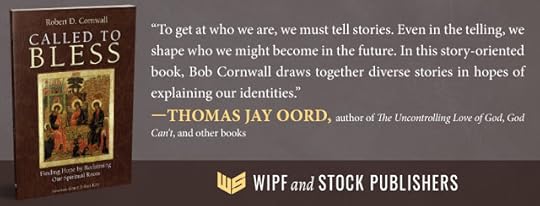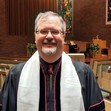Deconstruction, Reconstruction, & Being Called to Bless


We allknow about the slow decline of Mainline Protestantism. Over the years, the once-dominantdenominations have declined significantly in numbers. There are numerous reasonsfor it, but the truth is these traditional denominations, including the one inwhich I’m ordained, have failed to retain their children and draw in newmembers. Many of the children of older Mainliners ended up Evangelicals. Now,we’re seeing a major shift within Christianity, as many evangelicals,especially ones who grew up in it are leaving. Not only are they leavingevangelicalism, but they’re also leaving the Christian faith. There are numerous reasonsfor that, including patriarchy, scandals, politicization (alignment with the Trump-ledRepublican Party), and a rejection of LGBTQ persons. Several books haveappeared exploring these realities. At the moment, I’m finishing reading SarahMcCammon’s Exvangelicals (reviewforthcoming).
I’m aBoomer. I was born and raised an Episcopalian but became part of aPentecostal/Evangelical church in High School. Then I went to a ChristianCollege, served as a youth minister in a conservative church, and then headedoff to seminary (an evangelical seminary). Over time I shed much of theevangelical ethos and became more liberal in my politics and even my theology.One of the key moments for me was being fired from my teaching position at aBible college for being too liberal. A second was the coming out of my brother,which led to my own reappraisal of my beliefs about LGBTQ. What is happeningtoday seems different from what I experienced. It seems more intense, andpeople are simply exiting, though some are seeking to create Postevangelicalcommunities. What that will look like is yet to be determined. I’m a bitconcerned that the current communities are largely white and perhaps male-dominated.They tend to embrace LGBTQ persons, but my concern is that they become justanother silo. But not everyone is staying.
One ofthe current words for what is happening today is “deconstruction.” It is a termthat has been around for a while but wasn’t something we talked about during myperiod of transition/transformation. Regarding deconstruction, I’ve beenreading God After Deconstruction byTom Oord and Tripp Fuller. A review of this book is forthcoming as well. Theyalso describe the processes undertaken by evangelicals, mostly white, who areseeking to extricate themselves from the narrow confines of their evangelicalexperiences. As with those whom Sarah McCammon describes, most of those theyspeak of were born into a white evangelical subculture, such that they werefully enmeshed in this world.
As Iread these books, I realized that my story is different. I wasn’t born into thissubculture, didn’t attend Christian schools, or was homeschooled, and I hadfriendship circles outside the subculture. I bought in, but it appears I wasnot as deeply rooted as some who are now undergoing deconstruction.
As Iread these books and watch the developments on the ground, I wonder how thosewho have been so affected by their past experiences might move beyonddeconstruction to reconstruction. As Tom and Tripp suggest, there may need tobe theological adjustments, though I’m not sure that Process theology is theonly possible path out of the morass. For me, the people who contributed to mytransition included Karl Barth, Hans Küng, Jürgen Moltmann, and DietrichBonhoeffer.
One ofthe questions we face as we begin to put the pieces back together is where wefind meaning and purpose. In my own journey, I discovered that there are piecesfrom the past and present that have helped form me. I call this spiritual DNA.As people deconstruct there is a tendency to toss out everything from the past,but I believe that there are pieces that can be reclaimed. If you are like me,and you have spent time in several traditions, you might have severalstrands of spiritual DNA. How then do we put things back together?
In 2021I published with Cascade Books (Wipf and Stock) a book I titled Called to Bless: Finding Hope by Reclaiming OurSpiritual Roots. In that book I share my own spiritual journey, whatyou might call a theological memoir, reflecting on the elements that haveformed me, as I spent time in Anglicanism, Pentecostalism, Evangelicalism, andthe Disciples/Restoration Movement. As I’ve reflected on the discussions about deconstruction,I believe that my book offers a possible path to reconstruction. The key pieceis the thread that ties everything in the book together, and that is ourcalling as Christians, as spiritual descendants through Jesus of Abraham andSarah, to be a blessing to the nations (Gen. 12:1-4). Here we find a purpose inlife that is deeply rooted in our faith tradition. For me that discovery hasempowered my own engagement with dear friends outside the Christian communityas we each claim our calling to be a blessing.
Withthis in mind, I invite you to pick up my book Called to Bless.From now until the end of May, you can order a copy from Wipf and Stockand receive a 40% discount. Just use the code: CALLEDTOBLESSCORNWALL. You can also getthe book at Amazon and other fineretailers.



